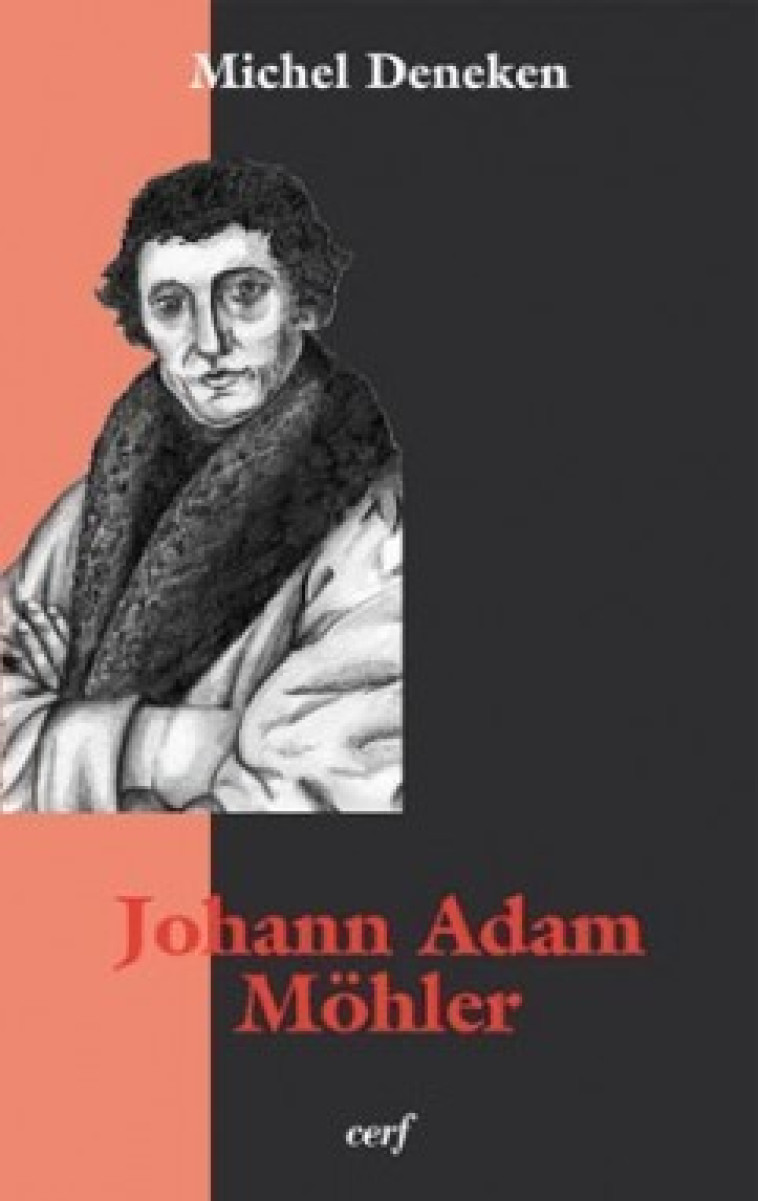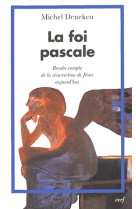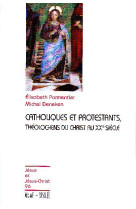Johann adam mohler
Michel deneken
La théologie de J. A. Möhler (1796-1838) se caractérise par un retour aux sources patristiques de la Tradition, une conception historique de la Révélation, une étude systématique des doctrines des Églises chrétiennes et une ouverture à la pensée de son temps. De l'Église, il donne une définition affranchie d'une vision juridique et sociétale, au profit de sa conception comme un organisme vivant, animé par l'Esprit saint, pérennisant le mystère de l'Incarnation au milieu du monde. Möhler apparaît ainsi comme un pionnier de l'ecclésiologie de Vatican II. La question de la Tradition et de l'Écriture se trouve également au coeur de la théologie de Möhler. Faisant encore oeuvre de pionnier, il puise aux sources patristiques tout en assimilant nombre d'éléments de l'esprit de son temps, il développe un concept dynamique de Tradition vivante qui commence avec le Jésus de l'histoire. À la description du rapport entre Écriture et Tradition qu'une théorie des deux sources ne fait que caricaturer, il préfère une conception organique, inscrite dans la dynamique de l'histoire comprise comme Révélation, posant ainsi les linéaments de « Dei Verbum ». Enfin Möhler apparaît également comme un des pères de l'oecuménisme moderne. En faisant de l'unité le principe organique et le fondement de l'Église, il aborde la question de la confessionnalité sous un angle nouveau. Cette capacité à discerner chez l'autre croyant des éléments authentiques de la foi chrétienne annonce le changement d'attitude que Vatican II manifestera par rapport à l'oecuménisme. Ce livre a pour objectif de faire connaître au public francophone un théologien allemand dont la fécondité se fait sentir encore au XXIe siècle. La première partie, biographique, met en évidence l'enracinement historique, ecclésial et universitaire de l'oeuvre de Möhler. Dans la deuxième partie, les principaux thèmes théologiques sont présentés succinctement. Les textes proposés dans la troisième partie permettront au lecteur de se convaincre de la modernité et donc de l'actualité de l'oeuvre de cette figure de proue de l'école de Tübingen. Par sa vie de chrétien, de théologien, de prêtre, Möhler, engagé dans les débats de son temps, a servi une Église et une théologie enracinées dans l'Évangile.
--
The theology of J. A. Möhler (1796-1838) is characterized by a return to the patristic sources of the Tradition, a historical conception of the Revelation, a systemic study of the doctrines of the Christian Churches and an opening toward the thinking of his times. He gives a definition of the Church that is free of any societal and juridical vision, favouring the concept of a living organism animated by the Holy Spirit, a continuance of the mystery of the incarnation in the midst of the world. In this way, Möhler appears to be a herald of Vatican II ecclesiology. The question of Tradition and the Scriptures also lies at the heart of Möhler's theology. Once again a pioneer, he draws from patristic sources assimilating many elements in the spirit of his times, he develops a dynamic concept of the living Tradition that begins with the Jesus of history. Rather than sketchily describe the relation between the Scriptures and Tradition as a theory of two sources, he prefers an organic conception, inscribed in the dynamic of history seen as Revelation, thus posing the lineage of "Dei Verbum". Lastly, Möhler emerges as one of the fathers of modern ecumenism. By making unity the organic principle and the foundation of the Church, he approaches the issue of confessionality from a new angle. This ability to discern authentic elements of Christian faith in the other believer heralds a change in attitude one that Vatican II instated in matters of ecumenism. The aim of this book is to make this German Theologian, whose prolific work still holds influence in the 21st century, better known to 21st century readers. The first part, biographical, reveals the historical, ecclesial and academic elements in Möhler's oeuvre. In the second part, the main theological themes are succinctly presented while the texts included in the third part will convince the reader of the modernity and the topicality of the work of this key figure of the school of Tübingen. Through his life as a Christian, theologian and priest, and as a man engaged in all the debates of his times, Möhler served a Church and a theology that is solidly rooted in the Gospel.



